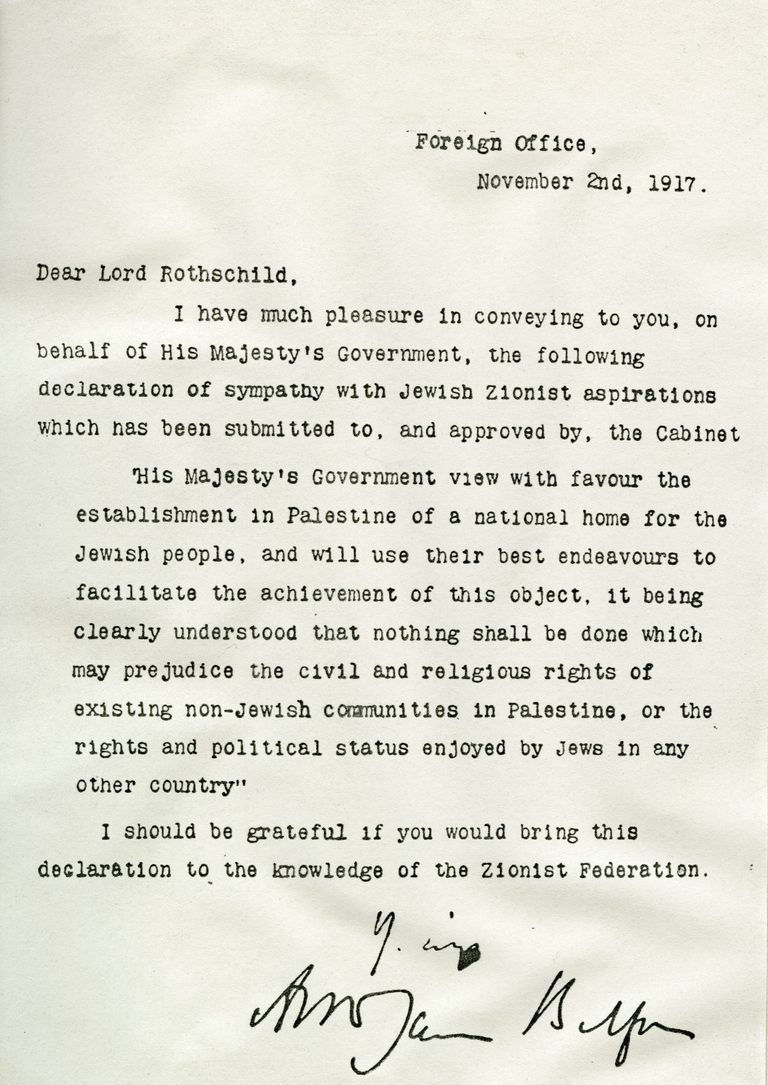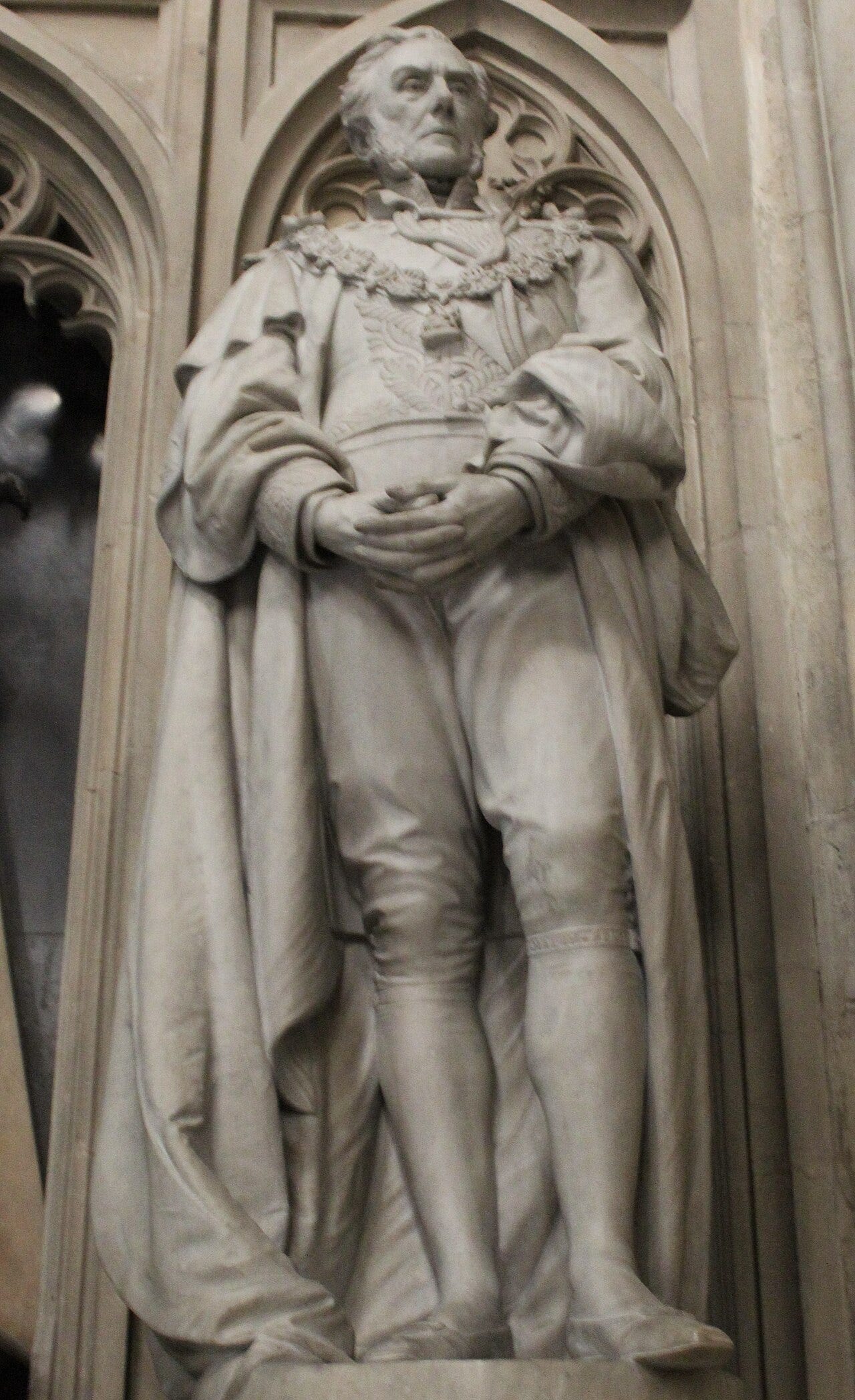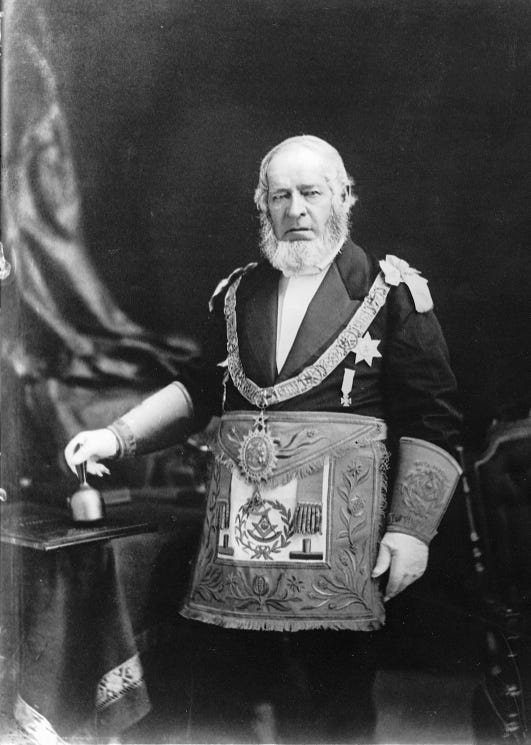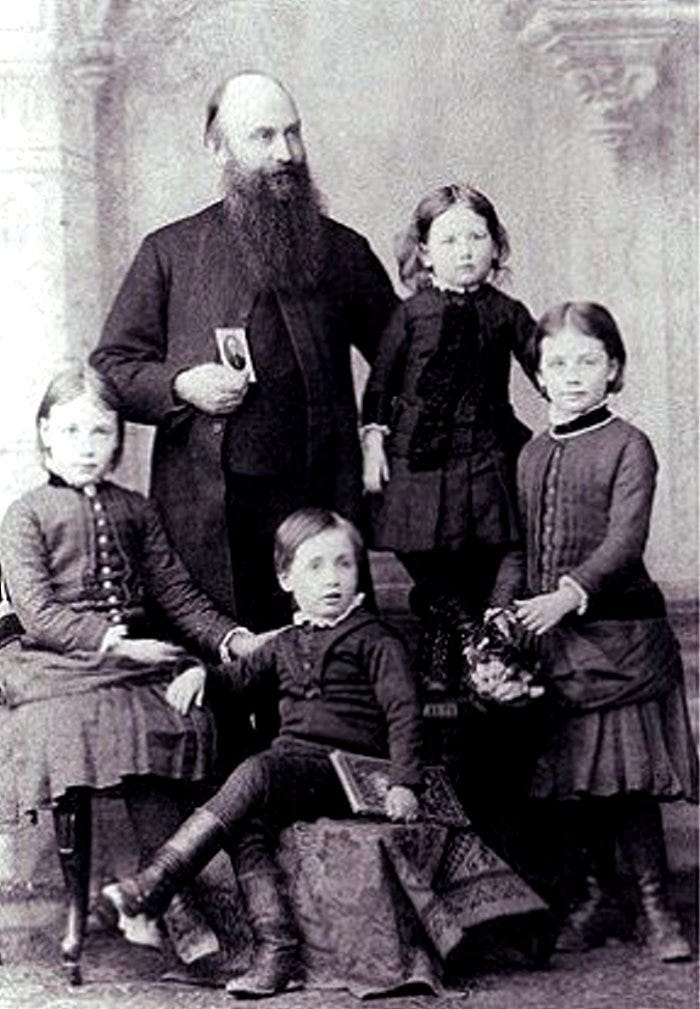The British Evangelical Genesis of Zionism and Its Global Impact (🇬🇧+🇮🇱)
The Political Hijacking of Jewish Identity
GPT-Video Summary
Introduction
This video, hosted by Dan Cohen and featuring Rabbi Yaakov Shapiro, critically examines Zionism's origins, ideology, and impact.
It reveals Zionism’s roots in 16th-century Christian evangelical theology and its evolution into a political nationalist movement, contrasting sharply with Judaism’s spiritual essence. Rabbi Shapiro argues that Zionism appropriates Jewish symbols and narratives to legitimize its secular goals, often conflating anti-Zionism with anti-Semitism to silence critique. The discussion highlights the pivotal role of British evangelical Christians, the ideological transformation led by figures like Theodore Herzl, and the displacement and conflict stemming from the establishment of the State of Israel. It underscores the incompatibility of Zionism with traditional Jewish values, framing it as a movement that redefined Jewish identity to prioritize political sovereignty over spiritual holiness.
Summary
🎥 Zionism and Judaism Are Not Synonymous
Zionism is a political nationalist movement, and Judaism is a religion focused on spiritual values. Zionism’s foundational goal is the establishment of a Jewish state, while Judaism prioritizes holiness, ethical conduct, and religious practice. The conflation of the two is a deliberate tactic by Zionist leaders to legitimize their political agenda, misrepresenting Judaism in the process. The transcript identifies this misrepresentation as a key source of confusion in public discourse. 00:24:45
The discussion frames Zionism as a movement fundamentally distinct from Judaism, born from external theological and nationalist ideas rather than Jewish religious traditions.
📜 The Origins of Zionism in Christian Evangelical Thought
Zionism did not originate within Judaism. Its foundations lie in Christian evangelical theology, which emerged in the late 1500s and early 1600s. Protestant eschatology promoted the idea of Jews returning to Palestine as a step toward fulfilling biblical prophecy. This concept became particularly influential in 19th-century Britain, where evangelical leaders like Lord Shaftesbury and Alexander Keith championed the Jewish return to Palestine as part of divine providence. 00:25:15
British evangelicalism provided the ideological framework for Zionism, long before Jewish leaders adopted it. Their focus on Palestine’s symbolic role in biblical prophecy prefigured the Zionist emphasis on the Holy Land. These Christian advocates framed the Jewish return to Palestine as both a religious necessity and a geopolitical strategy, paving the way for British imperial involvement. 00:25:30
📖 The Political Adaptation of Zionism by Jewish Leaders
Theodore Herzl, often regarded as the founder of modern Zionism, adapted the evangelical concept into a political strategy. Herzl, a secular thinker, sought to create a Jewish state to address anti-Semitism in Europe. He initially considered practical solutions such as Uganda or mass conversions to Christianity. However, the symbolic and ideological weight of Palestine, rooted in the narratives established by British evangelicals, became the central focus of the movement. 00:27:30
The First Zionist Congress in 1897 formalized Zionism as a nationalist movement dedicated to the establishment of a Jewish homeland in Palestine. Herzl’s vision departed from traditional Jewish values by prioritizing political sovereignty and territorial identity over religious and spiritual principles. 00:34:30
🌍 British Influence: The Balfour Declaration
The Balfour Declaration of 1917 is a milestone in the history of Zionism, signifying formal British support for a Jewish homeland in Palestine. The declaration resulted from the convergence of evangelical theology and British imperial interests. 00:25:15
The transcript emphasizes that the British government’s endorsement was deeply influenced by Christian evangelical ideas, which framed Jewish restoration as a fulfillment of biblical prophecy. This alignment between British policy and Zionist objectives solidified international support for the movement, marking a critical turning point in its realization.
🛑 Ideology Over Practicality: The Uganda Scheme
The Uganda Scheme, proposed during the early 20th century, highlighted Zionist leaders’ consideration of alternative locations for a Jewish state. Uganda was seen as a potential refuge for persecuted Jews in Europe. However, the proposal was ultimately rejected in favor of Palestine. 00:35:45
The transcript underscores that the decision was driven by ideological commitment rather than practical concerns. Palestine’s symbolic and historical significance, deeply rooted in evangelical and Zionist narratives, outweighed Uganda’s practical advantages. This choice exemplifies Zionism’s prioritization of its ideological goals over immediate humanitarian needs.
✡️ The Conflict Between Zionism and Judaism
Judaism is a religion that centers on spirituality, morality, and the pursuit of holiness. Zionism, by contrast, is a nationalist ideology that seeks to redefine Jewish identity in political terms. The transcript establishes that Zionism is antithetical to Judaism’s core values. 00:42:30
Rabbi Yaakov Shapiro argues that Zionism’s reliance on militarism, nationalism, and territorial ambitions directly contradicts Judaism’s emphasis on ethical conduct and religious devotion. Zionist leaders appropriated Jewish symbols and narratives, stripping them of their religious meaning to serve a secular nationalist agenda.
🔄 Transforming Jewish Identity
Zionist leaders like Vladimir Jabotinsky sought to transform Jewish identity, creating what they described as the “new Jew.” This vision prioritized strength, militarism, and political power, rejecting traditional Jewish values centered on humility and spirituality. 00:38:15
Benjamin Netanyahu’s use of religious references, such as the prophecy of Ezekiel’s dry bones, illustrates how Zionist leaders co-opt religious symbols to align their secular nationalist goals with biblical narratives. This tactic is presented in the transcript as a deliberate strategy to misrepresent Zionism as the fulfillment of Judaism. 00:32:30
🌍 The Consequences of Zionism
The establishment of the State of Israel in 1948 marked the culmination of Zionist aspirations. However, it also led to the displacement of Palestinian communities and decades of conflict. The Gaza Strip and other territories remain sites of ongoing humanitarian crises, highlighting the enduring impact of Zionist policies. 00:19:30
The transcript addresses how Zionist organizations, such as the ADL, conflate anti-Zionism with anti-Semitism to silence critique and shield Zionism from ideological challenges. This conflation distorts public discourse and complicates efforts to address the consequences of Zionist actions. 00:45:00
💡 Final Insights
Zionism originated from external theological concepts and evolved into a political nationalist project. It diverges sharply from Judaism, appropriating its symbols while contradicting its spiritual values. British influence, both ideological and political, played a decisive role in legitimizing and advancing Zionist goals. The consequences of Zionism, both for Jewish identity and for global politics, remain profound and divisive. 00:46:15
FAQ
Zionism and Judaism are entirely distinct, with no foundational connection. Zionism originated in the late 1500s and early 1600s among Christian evangelicals, including British figures, who believed in creating a Jewish state as part of their religious eschatology. Judaism, however, is a religion and lifestyle focused on spiritual values and practices. Zionism emphasizes political nationalism, whereas Judaism prioritizes spiritual holiness. 00:24:45
What are the origins of Zionism?
Zionism was conceived by Christian evangelicals, particularly Protestants, including British proponents such as Lord Shaftesbury and Alexander Keith in the 19th century. These figures saw the establishment of a Jewish state as a step toward fulfilling biblical prophecies. Their ideas were later adopted by secular Jewish figures such as Theodore Herzl, who aimed to redefine Jewish identity in nationalist and secular terms. 00:27:30
Why did Zionism focus on Palestine and Hebrew?
The focus on Palestine and the Hebrew language stems from ideological aspirations rather than practical needs. Early Zionist proponents, influenced by British evangelical narratives, emphasized a symbolic and ideological connection to the Holy Land. This contrasted with Theodore Herzl’s willingness to consider alternative languages or locations, such as Uganda. 00:33:15
How did Zionists view anti-Semitism?
Zionists viewed anti-Semitism not merely as a threat but as a validation of their belief that Jews, as they existed historically, were weak and needed transformation. They sought to socially engineer Jews into a nationalist identity, believing this would eliminate anti-Semitism by aligning Jewish identity with global norms of strength and power. 00:38:10
What role did Christian evangelicals play in Zionism?
Christian evangelicals, including British figures, were instrumental in forming the foundational ideas and theological justifications for Zionism. Many key Zionist symbols and ideologies, including the notion of Jews returning to Israel as a biblical fulfillment, originated from British evangelical thought in the 19th century. 00:26:00
Why did Zionists reject alternative locations like Uganda?
Zionists rejected alternative locations, such as Uganda, because their movement was ideologically tied to the land of Palestine. British evangelical support and narratives further solidified this focus, driven by symbolic and historical narratives rather than practical considerations for safety or self-determination. 00:35:45
How did Zionism redefine Jewish identity?
Zionism sought to transform Jewish identity from a religious and spiritual framework into a nationalist and political one. This involved appropriating religious symbols and narratives to create a secular, state-centric ideology, often in direct opposition to traditional Jewish values. 00:39:00
What is the relationship between Zionism and Judaism’s spiritual values?
Zionism is diametrically opposed to Judaism’s spiritual values. While Judaism prioritizes holiness, prayer, and spiritual study, Zionism emphasizes political power, nationalism, and militarism, often using religious symbols for secular purposes. 00:42:30
What were the views of early Zionist leaders like Theodore Herzl?
Theodore Herzl, a secular figure, envisioned a nationalist solution to anti-Semitism, believing that the creation of a Jewish state would eliminate prejudice. Herzl even proposed mass conversion to Christianity as a way to assimilate Jews into European society before fully committing to Zionism. 00:29:15
Why is the distinction between Zionism and Judaism important?
The distinction is crucial because Zionism often conflates itself with Judaism to gain legitimacy. This conflation misrepresents Judaism’s spiritual essence and uses religious identity for political and nationalistic purposes, which contradicts traditional Jewish teachings. 00:46:15
People
Dan Cohen
Dan Cohen is the host of the discussion and facilitates the exploration of Zionism’s ideological, historical, and theological underpinnings. He underscores the role of Christian evangelicals and modern political figures in shaping Zionism, emphasizing the distinction between Judaism and Zionism. 00:00:08
Rabbi Yaakov Shapiro
Rabbi Yaakov Shapiro is the guest expert who provides a detailed and authoritative analysis of Zionism. He highlights the historical origins of Zionism in Christian evangelical thought, its fundamental opposition to traditional Jewish values, and its ideological manipulation of Judaism for political purposes. He critiques the conflation of Zionism with Judaism and the use of anti-Semitism as a justification for Zionism. 00:23:00
Theodore Herzl
Theodore Herzl, a key figure in the development of modern Zionism, is described as a secular leader who sought to create a Jewish state to address anti-Semitism. Herzl envisioned Zionism as a social engineering project and considered alternative solutions such as mass conversion to Christianity or creating a state in Uganda. 00:27:30
Vladimir Jabotinsky
Vladimir Jabotinsky, one of the founding figures of right-wing Zionism, is identified for his vision of Zionism as a transformative ideology that sought to redefine Jewish identity by opposing traditional Jewish values. He emphasized strength and nationalism as central to the Zionist project. 00:38:15
Benjamin Netanyahu
Benjamin Netanyahu is mentioned as a contemporary example of a secular Zionist leader who references religious narratives, such as the prophecy of dry bones in Ezekiel, to align Zionism with biblical themes, despite the secular and nationalist foundations of Zionism. 00:32:30
Lord Shaftesbury
Lord Shaftesbury, a 19th-century British evangelical, is noted for promoting the idea of a Jewish state as part of a religious vision. His early advocacy influenced the ideological groundwork for modern Zionism. 00:25:15
Alexander Keith
Alexander Keith, another 19th-century British evangelical, is credited with contributing to the idea of Jews returning to the Holy Land as part of a biblical prophecy. He exemplifies the Christian evangelical roots of Zionism. 00:25:30
William Hechler
William Hechler, a Christian clergyman and associate of Theodore Herzl, played a pivotal role in helping Herzl connect with political leaders and further the Zionist agenda. His involvement highlights the collaboration between Christian evangelicals and early Zionists. 00:37:00
Dan Bilzerian
Dan Bilzerian, a social media influencer, is mentioned as a figure who has adopted anti-Semitic rhetoric while conflating Judaism and Zionism. He is noted for using his platform to critique Zionism in ways that align with harmful stereotypes, contributing to a distorted understanding of both Zionism and Judaism. 00:07:57
Organizations
Zionist Congress
The Zionist Congress was a foundational organization in the early development of Zionism, serving as the primary decision-making body. It was within this congress that key debates took place, such as whether the Jewish state should be located in Uganda or Palestine. The congress demonstrated the ideological commitment of Zionists to Palestine, regardless of alternative practical proposals. 00:34:30
Likud Party
The Likud Party represents the modern political manifestation of Vladimir Jabotinsky’s revisionist Zionism. It champions right-wing nationalist policies, reflecting the original Zionist ideology of strength, self-determination, and militarism. Its policies are rooted in the ideological transformation of Jewish identity into a nationalist framework. 00:38:45
Evangelical Christian Movements
Evangelical Christian movements, particularly in Britain, were instrumental in shaping Zionist ideology. Figures like Lord Shaftesbury and Alexander Keith promoted the idea of Jews returning to the Holy Land as a fulfillment of biblical prophecy. These movements provided theological justification for Zionism long before Jewish leaders like Theodore Herzl adopted the concept. 00:25:15
The Jewish National Fund (JNF)
The Jewish National Fund played a pivotal role in Zionist settlement efforts. It was established to acquire and develop land in Palestine, facilitating the establishment of a Jewish state. The JNF represents the institutional infrastructure of Zionism, supporting its territorial and demographic objectives. 00:41:15
The Anti-Defamation League (ADL)
The ADL is highlighted as an organization that actively conflates anti-Zionism with anti-Semitism. This conflation is described as a deliberate tactic to discredit criticism of Zionism and shield it from ideological challenges. The ADL’s actions are characterized as part of a broader effort to manipulate perceptions of Zionism in the public discourse. 00:45:00
Locations
Palestine
Palestine is the ideological and geographic centerpiece of Zionism. It was chosen as the location for the Jewish state due to its symbolic and historical significance, which was heavily influenced by religious narratives promoted by Christian evangelicals and later adopted by Zionist leaders. Despite practical considerations pointing to alternative locations, such as Uganda, the ideological connection to the Holy Land outweighed these options. 00:33:15
Uganda
Uganda was proposed as an alternative location for a Jewish state during early Zionist discussions, especially at the Zionist Congress. The proposal, known as the “Uganda Scheme,” reflected a pragmatic approach to addressing Jewish safety and self-determination. However, it was ultimately rejected because of the strong ideological commitment to Palestine as the historical and spiritual homeland of the Jewish people. 00:35:45
Jerusalem
Jerusalem holds a unique dual significance. Within Judaism, it is considered a holy city central to religious practice and prayer. Zionism reinterpreted Jerusalem as a nationalist and political symbol, marking a shift from its spiritual role in traditional Judaism to a representation of political sovereignty and identity. 00:45:30
Britain
Britain played a significant role in the ideological development and practical implementation of Zionism. British evangelical Christians, such as Lord Shaftesbury and Alexander Keith, were among the earliest proponents of the idea of a Jewish return to Palestine, which influenced Zionist ideology. Britain later facilitated this vision politically through the Balfour Declaration, establishing support for a Jewish homeland in Palestine. 00:25:15
Gaza Strip
The Gaza Strip is mentioned in the context of the ongoing humanitarian and political consequences of Zionist policies. The region exemplifies the tension and conflict that have arisen from the Zionist project, particularly in relation to Palestinian displacement and resistance. 00:19:30
Europe
Europe serves as the backdrop for the emergence of Zionism, shaped by the persistent anti-Semitism faced by Jewish communities. European nationalist movements inspired early Zionist leaders to redefine Jewish identity in political and nationalist terms. The historical experience of persecution in Europe was a key motivator for the establishment of a Jewish state. 00:38:10
Timeline
Late 1500s to Early 1600s: Emergence of Christian Zionist Thought
The foundational ideas of Zionism trace back to Christian evangelicals in the late 1500s and early 1600s. Protestant theology emphasized the return of Jews to Palestine as a precursor to the Second Coming of Christ. This theological framework, rooted in eschatological prophecies, laid the groundwork for later Zionist ideologies, despite being disconnected from Jewish religious beliefs. 00:24:45
19th Century: British Evangelical Influence
Prominent British evangelical Christians, such as Lord Shaftesbury and Alexander Keith, championed the idea of Jewish restoration to the Holy Land. These figures propagated the belief that Jewish resettlement in Palestine was a fulfillment of biblical prophecy. Their influence extended to political and intellectual circles in Britain, helping to shape the ideological foundation of modern Zionism before its adoption by Jewish leaders. 00:25:15
1839: Alexander Keith’s Book and Advocacy
Alexander Keith’s writings, particularly his book emphasizing biblical prophecy, argued that Jewish return to Palestine was inevitable. His theological works reinforced the idea within evangelical Christian communities that Jews had a destined role in fulfilling God’s plan. These ideas circulated widely, predating Jewish Zionist initiatives. 00:25:30
1897: The First Zionist Congress
The First Zionist Congress, convened by Theodore Herzl in Basel, Switzerland, marked the official beginning of Zionism as a political movement. Herzl’s efforts to create a Jewish state were influenced by European nationalism and the desire to counteract anti-Semitism. The congress established Zionism’s goal of creating a Jewish homeland, with Palestine as its focus, drawing ideological legitimacy from earlier evangelical concepts. 00:34:30
Early 20th Century: The Uganda Scheme and Internal Zionist Debates
Zionist leaders debated the practicality of establishing a Jewish state in Uganda as a temporary solution to the challenges facing European Jews. While Uganda was supported by some for its pragmatic advantages, the ideological attachment to Palestine prevailed. The symbolic significance of Palestine, reinforced by evangelical theology and historical narratives, overrode alternative proposals. 00:35:45
1917: The Balfour Declaration and British Political Support
The British government issued the Balfour Declaration, formally expressing support for the establishment of a Jewish homeland in Palestine. The declaration represented the culmination of decades of evangelical advocacy and political maneuvering. Britain’s geopolitical interests in the Middle East intersected with the religious motivations of Zionist and evangelical leaders, solidifying international backing for the Zionist project. 00:25:15
1948: Establishment of the State of Israel
The declaration of the State of Israel in 1948 marked the realization of Zionism’s central goal. The political and military processes leading to Israel’s creation were deeply influenced by the ideological framework established by earlier Zionist leaders and supported by international powers, particularly Britain. The establishment of the state resulted in significant displacement of Palestinian communities and entrenched regional conflicts. 00:41:15
Mid-20th Century: Rise of Revisionist Zionism and Likud
Revisionist Zionism, championed by Vladimir Jabotinsky, emphasized nationalism and militarism as key components of Jewish statehood. This ideological strand later evolved into the Likud Party, which became a dominant force in Israeli politics. Likud leaders, including Benjamin Netanyahu, continued to frame Zionist policies using religious and historical narratives, reflecting a synthesis of nationalist and evangelical influences. 00:38:45
Late 20th Century to Present: Gaza and the Consequences of Zionist Policies
The Gaza Strip and other occupied territories became focal points of humanitarian crises and geopolitical conflict. Zionist policies in these areas reflect the enduring legacy of the movement’s ideological roots, prioritizing territorial control and demographic transformation. The conflation of anti-Zionism with anti-Semitism, driven by organizations such as the ADL, has further complicated public discourse on the subject. 00:45:00
Bibliography
The Empty Wagon by Rabbi Yaakov Shapiro
The Empty Wagon is one of the most critical texts for understanding the ideological underpinnings of Zionism and its contrast with Judaism. Rabbi Shapiro’s book, described as roughly 1,000 pages long, offers an in-depth analysis of Zionism’s development, exposing its roots, motives, and the ways it has appropriated Jewish identity for political ends. The book serves as a comprehensive deconstruction of Zionism, making it an essential resource for those seeking clarity on the subject. Rabbi Shapiro suggests obtaining the book from independent Jewish booksellers rather than platforms like Amazon, which overprice it. 02:15:56
The Evidence Of Prophecy (1833) by Alexander Keith
Alexander Keith’s book, written in the 19th century, discusses biblical prophecy and argues that the return of Jews to Palestine is a divine mandate. It played a pivotal role in popularizing the theological justification for Zionism among Christian evangelical audiences. The book contributed to the ideological foundation of Zionism long before Jewish leaders adopted these ideas. 00:25:30
Mein Kampf by Adolf Hitler
Mein Kampf is referenced in the transcript during a discussion of how Zionist ideology intersected with anti-Semitic narratives. Rabbi Shapiro explains that Adolf Hitler, in Chapter 2 of Mein Kampf, claims Jews are not just a religious group but a distinct nationality. Hitler cites Zionism as evidence supporting this view, arguing that Zionists themselves advocate for Jewish nationalism. This alignment allowed Hitler to reinforce his anti-Semitic ideology, claiming that Jews did not belong in countries like Germany because they were a separate nation. Rabbi Shapiro points out that, contrary to Hitler’s claims, many Jews of that era rejected Zionism entirely. This comment demonstrates the complex and paradoxical ways in which Zionism was used both by its proponents and by anti-Semitic figures like Hitler to advance conflicting agendas. 00:38:10
Glossary
Zionism
Zionism is a nationalist political ideology that advocates for the establishment and maintenance of a Jewish state, originally envisioned in Palestine. Rooted in 19th-century European nationalism, it redefines Jewish identity as a political and nationalist construct, often using religious symbols and narratives to justify its goals. 00:24:45
Judaism
Judaism is a religion and way of life centered on spiritual, moral, and ritual principles derived from the Torah and Jewish traditions. Unlike Zionism, Judaism is not inherently political or nationalist and prioritizes spiritual values over territorial ambitions. 00:42:30
Christian Evangelicals
Christian evangelicals, particularly British Protestants, are a group whose religious beliefs emphasize biblical prophecy and the return of Jews to the Holy Land as part of God’s plan. They were instrumental in formulating the ideological foundations of Zionism before its adoption by Jewish leaders. 00:25:15
The Balfour Declaration
The Balfour Declaration, issued in 1917, was a statement by the British government supporting the establishment of a national home for the Jewish people in Palestine. It represents a significant political endorsement influenced by both evangelical theology and British imperial interests. 00:25:15
Uganda Scheme
The Uganda Scheme was a proposal during the early 20th century to establish a Jewish state in Uganda as a temporary refuge for Jews facing persecution in Europe. Although debated, it was ultimately rejected due to the Zionist movement’s ideological commitment to Palestine. 00:35:45
The Likud Party
The Likud Party is a political party in Israel that evolved from revisionist Zionism, emphasizing nationalism, militarism, and territorial expansion. It represents the modern political application of Zionist principles rooted in Jabotinsky’s ideological framework. 00:38:45
The Jewish National Fund (JNF)
The Jewish National Fund is an organization established to facilitate the acquisition and development of land in Palestine for the Zionist movement. It played a central role in implementing territorial and demographic strategies critical to the establishment of the State of Israel. 00:41:15
Anti-Semitism
Anti-Semitism refers to prejudice, hostility, or discrimination against Jews. Zionists interpreted anti-Semitism as evidence of Jewish vulnerability and used it as a justification for the creation of a Jewish state. 00:38:10
The Gaza Strip
The Gaza Strip is a region in Palestine that remains a focal point of conflict and humanitarian crisis. It exemplifies the territorial disputes and consequences of Zionist policies in the region. 00:19:30
Revisionist Zionism
Revisionist Zionism is a branch of Zionist ideology founded by Vladimir Jabotinsky. It emphasizes military strength, territorial expansion, and nationalism as key elements of Jewish statehood. It contrasts with other Zionist movements that may focus on diplomacy or cultural development. 00:38:15






No comments:
Post a Comment